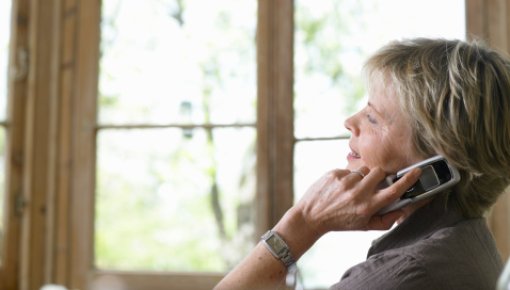There were five metastases spread over my entire liver
When I came back from rehabilitation, my gynecologist had doubts about the diagnosis because my tumor had been detected at a very early stage. She referred me to the hospital to have more examinations. But they confirmed that I had liver metastases: there were five metastases spread over the entire liver.
When I heard the diagnosis I was shattered. I thought, well, this is the end now. Many people are afraid of dying when they get this diagnosis, that's quite normal. Then I had chemotherapy, and the time leading up to the first examination was very stressful and I was very scared. But at the examination they could see that the treatment was working. That was a great relief.
I had a follow-up examination only last week, and the doctor said that there was nothing to see on the one side, and that on the other side there was a lump, but that it was encapsulated and hadn’t changed.

